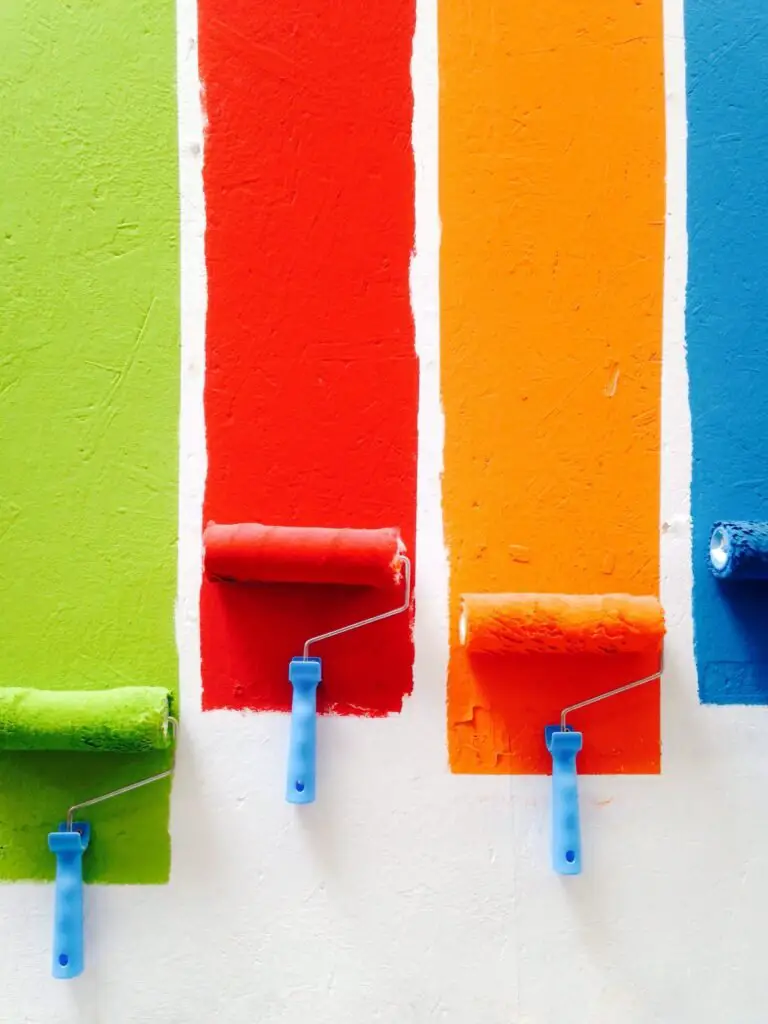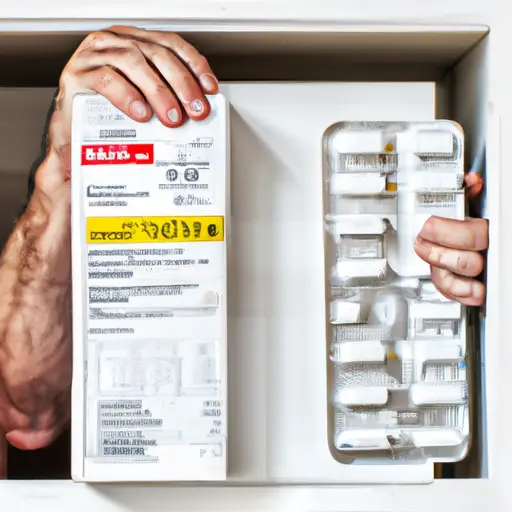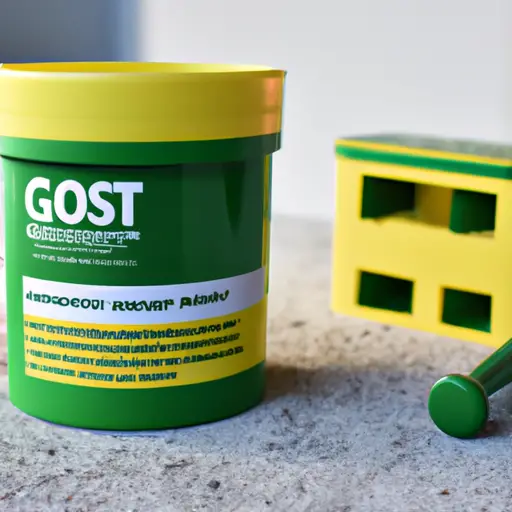So you’re working on a home improvement project and you’re wondering if you can simplify your painting process by using a primer and paint in one. Well, you’re in luck! We’ve got all the information you need to know about the product named “Can I Buy Primer And Paint In One.” Whether you’re a DIY enthusiast or a professional painter, we’ll explore the benefits, drawbacks, and everything in between to help you make an informed decision. Say goodbye to the hassle of separate priming and painting – let’s get started!

Can I Buy Primer And Paint In One?
Table of Contents
What is primer and paint in one?
Primer and paint in one is a type of paint that combines the properties of a primer and a paint into a single product. Traditionally, a primer is a preparatory layer applied before painting to enhance adhesion, improve coverage, and create a smooth surface. Paint, on the other hand, is the colored coating applied on top of the primer to provide color, protection, and durability. Primer and paint in one is designed to simplify the painting process by eliminating the need for a separate primer, thus saving both time and effort.
Benefits of using primer and paint in one
Time-saving
One of the primary advantages of using primer and paint in one is the time it saves during painting projects. Since there is no need to apply a separate primer, the overall application process is streamlined. This can be especially beneficial when working on smaller projects or tight schedules where time is a constraint. By eliminating the additional step of applying primer, both the preparation and painting stages can be completed more efficiently.
Cost-effective
In addition to saving time, using primer and paint in one can also be cost-effective. With traditional painting methods, purchasing a separate primer and paint can increase the overall expenses. Primer and paint in one eliminates the need for purchasing and applying a separate primer, which can help reduce the cost of materials for a painting project. This can be particularly advantageous for budget-conscious individuals or large-scale projects that require a significant amount of paint.
Smooth and even finish
Primer and paint in one is formulated to provide a smooth and even finish. The combination of primer and paint properties ensures that the paint adheres well to the surface, minimizing the appearance of brush strokes, roller marks, or uneven color distribution. This can result in a professional-looking finish that enhances the overall aesthetic appeal of the painted surface. Whether painting interior walls or furniture, primer and paint in one can help achieve a seamless and flawless appearance.
Versatility
Another benefit of using primer and paint in one is its versatility. This type of paint is suitable for a wide range of surfaces, including drywall, wood, plaster, and previously painted surfaces. This versatility makes it a practical choice for various painting projects around the home or office. Whether you’re painting walls, ceilings, or furniture, primer and paint in one can provide a convenient solution that works on multiple surfaces, making it a versatile option for both DIY enthusiasts and professionals.
Limitations of using primer and paint in one
Limited coverage
While primer and paint in one offers convenience, it may have limitations in coverage. Due to its combined formulation, the coverage provided by primer and paint in one may not be as effective as using a separate primer and multiple coats of paint. This can be particularly noticeable when painting over darker or highly textured surfaces, where additional coats may be needed to achieve complete coverage. It’s important to consider the desired level of coverage when deciding whether to use primer and paint in one or a traditional painting method.
Less effective on difficult surfaces
Primer and paint in one may also be less effective on difficult surfaces such as metal or glossy finishes. These surfaces often require specific primers tailored to their unique properties to ensure proper adhesion and durability of the paint. While primer and paint in one can work well on many surfaces, it may not provide the same level of performance and longevity as specialized primers designed for specific surfaces. It’s crucial to evaluate the surface type before opting for primer and paint in one to ensure optimal results.
Limited color options
Another limitation of using primer and paint in one is the limited color options available. Unlike traditional paint, which offers a wide range of colors, finishes, and sheens, primer and paint in one may have a more limited color selection. This can be a drawback for individuals looking for specific colors or those wanting to match existing paint colors. If color variety and customization are important factors, using separate primer and paint may be a better choice.
Lack of specialized priming properties
Primer and paint in one typically lacks the specialized priming properties that separate primers offer. For instance, some surfaces may require specific primers to address issues such as stains, odors, or water damage. Primer and paint in one may not contain these specialized additives or may not provide the same level of protection and coverage as dedicated primers. If the surface to be painted requires additional priming properties, it may be necessary to use a separate primer before applying primer and paint in one.
Factors to consider when purchasing primer and paint in one
Surface type
When considering primer and paint in one, it’s essential to evaluate the surface type you’ll be painting. Different surfaces may require specific priming properties, adhesion capabilities, or durability. While primer and paint in one can work well on many surfaces, it’s important to ensure that it is suitable for the specific surface you intend to paint. Some surfaces, such as metal or previously painted surfaces, may require a separate primer before applying primer and paint in one for optimal results.
Coverage needs
Consider the desired coverage when choosing primer and paint in one. If you’re looking for complete coverage in one coat, primer and paint in one may not provide the same level of coverage as a separate primer and multiple coats of paint. However, if you’re willing to apply additional coats or are working with a lighter surface color, primer and paint in one may be suitable. Assess the coverage needs of your project and determine if primer and paint in one can meet those requirements.
Color preference
The color options available for primer and paint in one may be more limited compared to traditional paint. If color variety and customization are important to you, it may be worth considering separate primer and paint. Traditional paint offers a greater range of colors, finishes, and sheens, allowing for more options to match existing decor or personal preference. However, if you’re content with the available colors in primer and paint in one, it can still provide a convenient and efficient solution for your painting needs.
Desired finish
Consider the desired finish of the painted surface when choosing primer and paint in one. Primer and paint in one can typically provide a smooth and even finish, but it may not offer the same variety of finishes as traditional paint. If you’re looking for a specific finish or sheen, traditional paint may be a better option. However, if you’re satisfied with the finishes available in primer and paint in one, it can provide a reliable solution for achieving a seamless and aesthetically pleasing surface.

Popular brands offering primer and paint in one
Brand A
Brand A is a well-known manufacturer in the paint industry, offering a range of high-quality primer and paint in one products. Their primer and paint in one formulas are specially developed to provide excellent coverage, durability, and a smooth finish. With a variety of color options and finishes available, Brand A’s primer and paint in one is a popular choice for both DIY enthusiasts and professionals.
Brand B
Brand B is another reputable brand that offers primer and paint in one products. Their formulas are designed to save time and provide efficient coverage on various surfaces. Brand B’s primer and paint in one options come in a wide selection of colors to suit different preferences. With a focus on quality and performance, Brand B is a trusted choice for primer and paint in one solutions.
Brand C
Brand C is known for its innovative approach to primer and paint in one products. Their unique formulations combine durability, coverage, and ease of application. Brand C’s primer and paint in one covers a broad range of surfaces and comes in several attractive color options. With a strong reputation for delivering reliable results, Brand C is a popular brand among homeowners and professionals alike.
How to use primer and paint in one effectively
Preparing the surface
Before applying primer and paint in one, it’s crucial to prepare the surface properly. This involves cleaning the surface to remove dirt, dust, grease, or other contaminants that can affect paint adhesion. Fill in any cracks, holes, or imperfections with appropriate fillers and sand the surface to create a smooth substrate. Proper surface preparation ensures optimal adhesion and a long-lasting finish.
Applying the product
Apply primer and paint in one using a high-quality brush or roller, following the manufacturer’s instructions. Start with cutting in along edges, corners, and trim using a brush, and then use a roller to cover larger areas. Ensure even application and smooth out any drips or visible brush marks. Depending on the desired coverage, additional coats may be necessary. Allow each coat to dry completely before applying the next.
Drying and curing time
The drying and curing time of primer and paint in one may vary depending on the brand and environmental conditions. Follow the recommended drying time provided by the manufacturer before adding additional coats or applying a topcoat. Keep in mind that while the paint may be dry to the touch, it may still require additional time to cure fully. Avoid placing objects or touching the painted surface until it has cured completely to prevent any potential damage or imperfections.

Recommended scenarios for using primer and paint in one
Interior walls
Using primer and paint in one is particularly suitable for painting interior walls. With its time-saving and cost-effective properties, primer and paint in one can efficiently cover large wall surfaces without the need for a separate primer. The smooth and even finish achieved with primer and paint in one can enhance the overall appearance of interior walls, providing a fresh and updated look to any room.
Furniture Refinishing
Primer and paint in one can also be used for furniture refinishing projects. Whether you’re transforming an old piece of furniture or updating the look of your existing pieces, primer and paint in one offers convenience and versatility. It can be applied directly to wood, metal, or laminate surfaces, providing a durable finish that can withstand daily use. Furniture refinished with primer and paint in one can breathe new life into any space.
Small projects
Primer and paint in one is a fantastic choice for small painting projects. Whether you’re touching up a small area, painting a piece of decor or tackling a DIY craft, using primer and paint in one can simplify the process. Its cost-effective and time-saving attributes make it an ideal solution for smaller-scale projects where efficiency and convenience are of the essence.
Alternative options to consider
Using separate primer and paint
While primer and paint in one offers convenience, using separate primer and paint may be a better option in certain scenarios. If you require specific priming properties, desire a wider color selection, or require multiple coats for complete coverage, using a separate primer and paint can provide more flexibility and control over the painting process. Evaluating your specific needs and considering the advantages of separate primer and paint can help determine the best approach for your project.
Specialized primers
For challenging surfaces or specific priming needs, specialized primers may be necessary. Surfaces such as metal, glossy finishes, or areas with stains or odors may require a primer specifically formulated to address those issues. Specialized primers offer enhanced adhesion, improved coverage, and additional protection, ensuring that the paint adheres properly and lasts longer. When dealing with unique surfaces or challenging conditions, using a specialized primer can help achieve superior results.

Frequently asked questions about primer and paint in one
Can primer and paint in one be used on exterior surfaces?
While primer and paint in one is primarily designed for interior use, some brands offer specific formulas for exterior surfaces. These exterior-grade primer and paint in one products are designed to withstand the elements, provide protection, and maintain the appearance of exterior surfaces. It’s essential to check the product labels and specifications to ensure that the primer and paint in one you choose is suitable for the intended exterior application.
Can primer and paint in one be used on metal?
Primer and paint in one can be used on certain metal surfaces. However, for optimal adhesion and durability, it is generally recommended to use a separate primer specifically formulated for metal surfaces. Metal primers offer improved adhesion and corrosion resistance, ensuring that the paint adheres well and provides long-lasting protection. If painting metal surfaces, consider using a specialized metal primer for the best results.
Can primer and paint in one be tinted?
Tinting primer and paint in one can be possible with some brands and store locations. However, it’s important to check with the manufacturer or retailer to determine if the primer and paint in one you have can be tinted. Not all primer and paint in one products are compatible with tinting, and limitations may exist in terms of the color availability or the degree of tinting allowed. Consult with a professional or the product specifications for guidance on tinting options.
Can primer and paint in one be used on previously painted surfaces?
Primer and paint in one can generally be used on previously painted surfaces, provided that the existing paint is in good condition and properly prepared. Ensure that the previously painted surface is clean, free from loose paint or debris, and adequately primed if necessary. Applying primer and paint in one to a well-prepared, previously painted surface can provide a fresh and updated look without the need for additional priming steps.
Conclusion
Primer and paint in one offers a convenient and time-saving solution for many painting projects. It combines the properties of a primer and a paint into a single product, simplifying the painting process and saving both time and effort. While primer and paint in one offers numerous benefits, such as time-saving, cost-effectiveness, and a smooth finish, it may have limitations in coverage, effectiveness on difficult surfaces, color options, and specialized priming properties. When considering primer and paint in one, it is crucial to factor in surface type, coverage needs, color preference, and desired finish.
Popular brands offering primer and paint in one include Brand A, Brand B, and Brand C. To use primer and paint in one effectively, proper surface preparation, correct application techniques, and adequate drying and curing time are essential. Recommended scenarios for using primer and paint in one include interior walls, furniture refinishing, and small projects.
It is also important to consider alternative options, such as using separate primer and paint or specialized primers, depending on specific project requirements. By addressing these considerations and frequently asked questions, you can make an informed decision about primer and paint in one for your painting needs.


